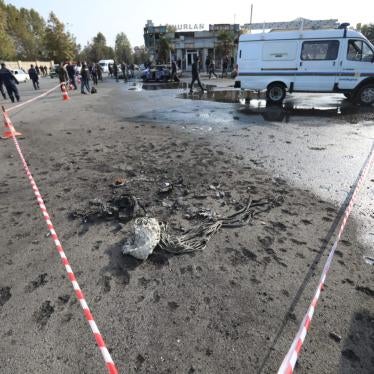Ten years into its life, the Convention on Cluster Munitions has made and is making a real difference, a real difference in eradicating these indiscriminate weapons and a real difference in saving lives and promoting sustainable development. Yet, there are also disturbing developments and much work to be done.
States Parties have been diligently implementing the provisions of the Convention and the compliance record is impressive. There have not been any allegations of use, production, or transfer of cluster munitions by any State Party.
Stockpile destruction has been a huge success. States Parties have destroyed 1.5 million cluster munitions and 178 million submunitions, about 99% of their collective total.
This record has been tarnished this year with two stockpile destruction extension requests. The CMC believes that there should be no more stockpile destruction deadline extensions needed. There is also still an open question if Guinea-Bissau has stocks; if so, it would be in violation of the convention.
According to the CMC’s Cluster Munition Monitor 2020, over the past 10 years, 560 km2 of contaminated land has been cleared and more than 450,000 submunitions have been destroyed. Six States Parties have completed clearance, including Croatia and Montenegro this year.
Still, there are three requests this year for extension of clearance deadlines.
There have been more than 4,000 cluster munition casualties in the past 10 years, about 99% of which were civilians.
Some assistance to victims exists in all relevant States Parties, and some have been improving the quantity and quality of assistance. But, there are still serious funding shortfalls and a significant lack of services in many.
Most disturbing, use has continued in a limited number of nations, most notably in Syria on a consistent basis since 2012, in Libya in 2019, and in Nagorno-Karabakh by both Armenia and Azerbaijan in 2020. The stigma against the weapon in states not party is strong, but not strong enough. There is an urgent need for States Parties to defend the norm and address instances of use much more effectively in the future. The Review Conference should adopt new proposals in this regard.
Universalization efforts have fallen far short of expectations. Five years ago States Parties set a goal of 130 States Parties by 2020, yet we are only at 110. There needs to be a more robust, higher prioritized, better coordinated effort.
The Lausanne Action Plan is a strong, comprehensive document that lays out achievable objectives with reasonable indicators. We are particularly pleased to see the so called ‘early warning mechanism’ included in the draft Lausanne Action Plan which should help States to stay on track with clearance and destruction of their stocks, including unnecessary retained mines, and prevent situations of missed deadlines.
CMC welcomes the strong commitment to gender and diversity in the outcome documents. Particularly we are pleased with the proposal on the machinery to integrate gender mainstreaming and diversity considerations into the work of the working groups/coordinators.
The draft political declaration is also strong, and commits States Parties to getting the job done.
We are aware, however, that there is now –as there has been in the past—some disagreement over language in which States Parties condemn any use of cluster munitions by any actor, under any circumstances. We understand the UK and a small number of other states object to this language.
The CMC sees this language as absolutely essential to the credibility of the political declaration, and in fact to the credibility of the convention. You should not accept language that is weaker than that contained in the Dubrovnik Action Plan five years ago. You should not accept language weaker than that agreed to just last week for our sister convention, the Mine Ban Treaty.
A crucial decision to be made relates to the machinery, and in particular to the proposal to reinstate the intersessional work program. The CMC strongly supports this proposal and believes that it would greatly enhance implementation of and compliance with the convention, as well as universalization efforts, which have been lagging.
While the CMC hopes that there will not be any need for additional extension requests for clearance or stockpile destruction in the future, the existence of an intersessional program would very much facilitate and improve the process for any such requests.
The Convention on Cluster Munitions is a remarkable piece of international humanitarian law and of disarmament law. With continued dedication and expanded efforts by States Parties, civil society and other partners, it will only become stronger and have a greater impact\.
Thank you.







